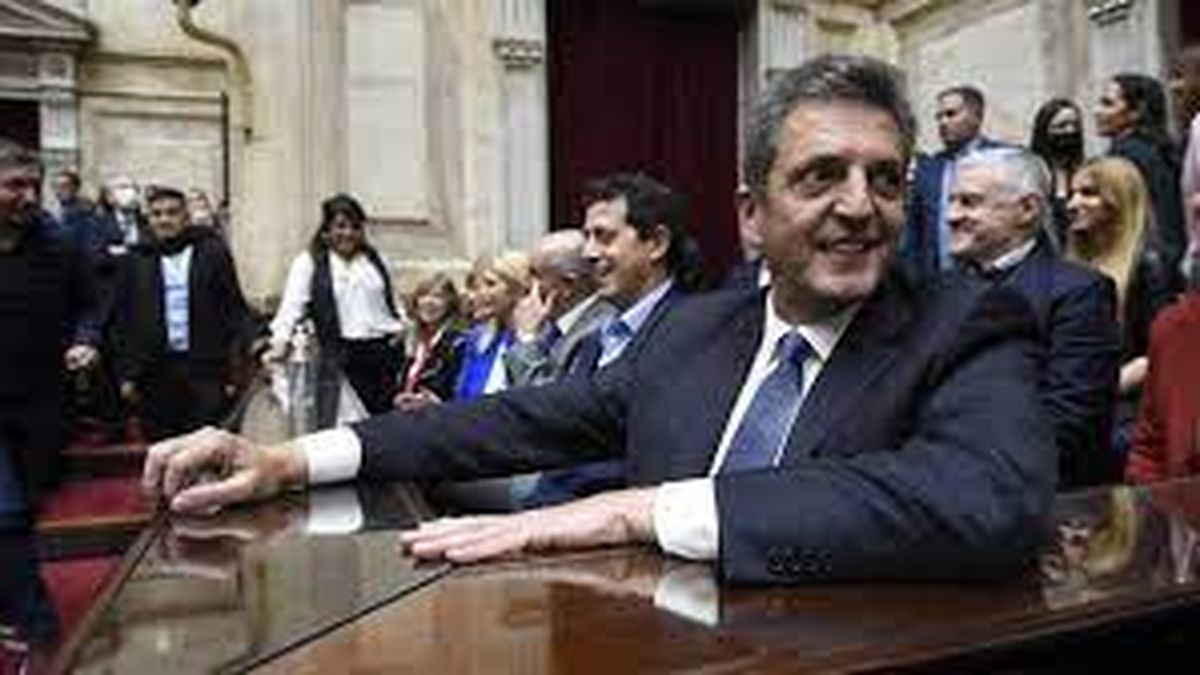On Sunday, Rubinstein wrote an article in the newspaper La Nación titled “Instead of discussing a successful swap, why don’t we discuss the future?” Point by point, he answered each of the criticisms that were made from JxC to the debt swap, and ended with a call for dialogue: “So, how about we leave all this ‘nonsense’ aside and start technical-political discussions from now, let’s see if in 2024, instead of the 0.9% deficit (agreed with the IMF), with a more vigorous economy (no drought, completed NK gas pipeline, new government, etc.), we dare to seek a budget balanced?”.
This year the fiscal goal signed with the IMF is 1.9% of GDP, which will require an effort of 0.4 percentage points, given that the goal was exceeded in 2022, and it was 2.3% of GDP. However, due to the historic drought, the consulting firm PxQ of Emmanuel Álvarez Agis estimated a drop in collection from withholdings of up to 0.4% of GDP and an impact on activity that could lead to a 3% drop in the economy.
Rubinstein also made the call on Twitter: “There is a lot to discuss, and who knows, maybe we could agree. And we would begin to leave this issue out of the political discussion as well: the need to balance public accounts”. As this newspaper was able to learn, from Economy they are willing to discuss all the alternatives, whether it is a reduction in public spending or an increase in taxes.
https://twitter.com/GabyRubinstein/status/1635065797319213058
How about, if we start technical-political discussions from now, let’s see if in 2024, instead of the 0.9% deficit (agreed with the IMF), already with a more vigorous economy (without drought, NK1 gas pipeline completed), new government, dare we seek a balanced budget?
—Gabriel Rubinstein (@GabyRubinstein) March 12, 2023
But above all, From the Palacio de Hacienda they consider that the focus should be on tax exemptions. The tax expense, which is the amount of income that the treasury stops receiving by granting a different tax treatment to an area, an economic sector or a certain consumption, is estimated at 2.49% of GDP for 2023, made up of derivatives of tax regulations (1.81% of GDP) and promotion schemes for companies (0.68% of GDP).
In the debate on the 2023 budget in Congress, Economía asked the legislators to discuss the Income Tax that the Judiciary does not pay, the benefits in Income for banks and insurance companies, the reduced VAT rates in sectors such as medicine private sector, the personal property tax that rural properties do not pay, and the Tierra del Fuego economic promotion regime. “The sphere of Parliament should always be open to discuss these issues,” they commented from Economy.
When asked by this newspaper if they see a cooperation scenario viable, they replied: “We always aspire to that, that there be politics, outside the dynamics of war.” In his note in the newspaper, Rubinstein: “You can call the Secretariat for Economic Policy and, if you want, starting tomorrow we can start talking.”
However, that phone is not going to ring. Ámbito consulted three leaders of the economic organization of Together for Change, who assured that they were not called to any dialogue, and they will not start it either, given that they consider that “the ball belongs to whoever is in the Government”. One of the economists commented: “They want the fiscal adjustment to be done in 2024, without considering doing something serious in 2023, they have nine months of government ahead of them ”. This newspaper consulted a senior Treasury source if the deficit target could be lowered and the response was blunt: “You can’t with the drop in collection due to the drought.”
The economic adviser to one of the JxC presidential candidates assured that they opted for a “cooperation scenario” when Massa took office last year: “This was seen with the approval of the budget in record time, where we paid a political cost.” In any case, they publicly assure that they cannot show any type of agreement, given what they consider a dynamic of “polarization in the electorate”, and the fear of losing votes with Javier Milei.
However, although they viewed the process of removing subsidies with good eyes and noticed a drop in spending, they considered that it was due to “bad manners”, such as generating floating debt or liquidating them due to inflation. What dynamited any possible agreement was the approval of the pension moratorium and the debt swap. “They want to agree after a moratorium that will cost 0.3% of GDP, we pay the political cost and nobody says how they are going to finance it, and after postponing maturities for $7 trillion to the next government,” said an economist who preferred the off record. It was during the debates on these issues that the communiqués that spoke of a “bomb” were published.
In any case, another economist considered that “it is possible to return to a scenario of cooperation.” JxC He believes that he has a good chance of returning to the Government in 2024. His plan is to carry out a “fiscal shock” and have a zero primary deficit the first year. But for that, they will look for the adjustment to begin this year, so you don’t have to do all the “dirty work”. They agree with the Government and the IMF that one of the points is “to make all the tariff adjustments.”
Another point could be to lower the Potenciar Trabajo plans, by 1.3 million, almost triple that of 2019, and with a lower unemployment rate. “Cristina Kirchner lowered them to 250,000 during her management and we doubled them to 500,000, so that at least they take it to where we left off,” said an economist. In addition, they consider that public companies “have to have less deficit”, and point to Aerolíneas Argentinas, and look closely at “discretionary transfers to the provinces”. “If they don’t devalue or accommodate relative prices, at least lower the deficit,” they commented.
Source: Ambito




